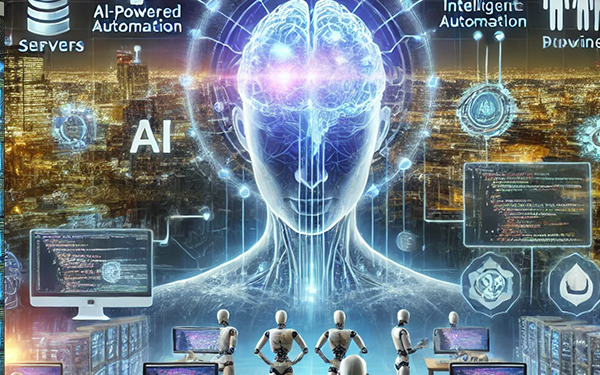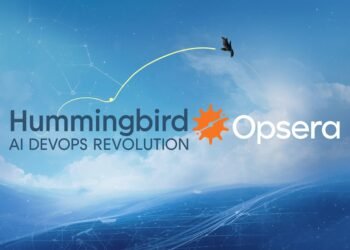As software development becomes increasingly complex, the integration of artificial intelligence (AI) into DevOps processes is transforming the way teams build, test, and deploy applications. AI-powered DevOps is modernizing traditional workflows, enhancing efficiency, and improving the developer experience by automating repetitive tasks, predicting issues, and optimizing software delivery pipelines.
In this article, we explore how AI is reshaping DevOps, increasing productivity, and redefining the role of developers in a more intelligent and automated software development lifecycle (SDLC).
The Rise of AI in DevOps
DevOps, the practice of integrating development and operations teams to streamline software delivery, has traditionally relied on automation, continuous integration (CI), and continuous deployment (CD) tools. While these approaches have significantly improved software development, AI is taking DevOps to the next level by introducing intelligence into automation.
AI-driven DevOps leverages machine learning (ML) algorithms, natural language processing (NLP), and predictive analytics to optimize development workflows, identify bottlenecks, and enhance overall software reliability. By reducing human intervention in repetitive tasks, AI allows developers to focus on innovation rather than maintenance.
How AI is Transforming DevOps
1. Intelligent Automation
AI-powered automation enables DevOps teams to automate complex workflows with minimal manual intervention. Some key applications include:
- Automated Code Reviews: AI-driven tools analyze code quality, detect vulnerabilities, and suggest improvements in real-time.
- Intelligent Test Automation: Machine learning models predict which areas of code are most likely to fail, allowing for smarter test prioritization.
- Self-Healing Infrastructure: AI can detect failures in infrastructure components and automatically initiate recovery processes, reducing downtime.
2. Predictive Analytics and Anomaly Detection
One of AI’s biggest contributions to DevOps is its ability to analyze massive datasets to predict issues before they escalate. By monitoring logs, system metrics, and user behavior, AI can:
- Identify Performance Bottlenecks: AI detects slow response times and suggests optimizations before users experience delays.
- Prevent Outages: Predictive models analyze historical data to anticipate system failures and recommend preventive actions.
- Detect Security Threats: AI identifies unusual patterns in network traffic or code changes that may indicate a security breach.
3. Enhanced Collaboration with AI Assistants
AI-powered chatbots and virtual assistants are becoming integral to DevOps teams by improving collaboration and efficiency. These assistants can:
- Answer Developer Queries: AI bots provide instant solutions to common coding or deployment issues.
- Automate Incident Management: AI assists in ticketing systems by categorizing and prioritizing incidents.
- Facilitate Knowledge Sharing: AI-driven documentation tools provide real-time suggestions based on past project insights.
4. Optimizing CI/CD Pipelines
Continuous integration and continuous deployment are central to DevOps, and AI is making them even more efficient:
- Automated Deployment Decisions: AI evaluates system health and user feedback to determine the optimal time for deployments.
- Smart Rollbacks: If an issue is detected in a new release, AI can initiate an automatic rollback to a previous stable version.
- Code Merge Conflict Resolution: AI suggests conflict resolutions in version control systems, reducing manual intervention.
5. Redefining Developer Experience
The developer experience is crucial for productivity, and AI is redefining it by:
- Reducing Cognitive Load: AI-driven recommendations help developers write better code faster, reducing mental fatigue.
- Personalized Workflows: AI adapts development environments based on individual coding styles and preferences.
- Faster Onboarding: AI-powered documentation and interactive tutorials help new developers quickly understand project architectures.
Challenges and Considerations in AI-Driven DevOps
While AI in DevOps offers numerous benefits, there are challenges to consider:
- Data Quality and Bias: AI models rely on historical data, and biased or incomplete datasets can lead to incorrect predictions.
- Security Concerns: AI-powered automation must be secured against adversarial attacks that could manipulate ML models.
- Skill Gap: DevOps teams need upskilling to effectively implement and manage AI-driven solutions.
The Future of AI in DevOps
As AI technology continues to evolve, its role in DevOps will expand further. Future advancements may include:
- AI-Generated Code: AI-assisted coding tools like GitHub Copilot will become even more sophisticated, reducing the need for manual programming.
- Autonomous DevOps: Self-learning AI systems could fully manage development pipelines, from writing code to deploying and monitoring applications.
- Stronger AI-Driven Security: AI will play a larger role in cybersecurity, automatically patching vulnerabilities before they are exploited.
Conclusion
AI is modernizing DevOps by bringing intelligence, automation, and predictive analytics to software development and operations. By boosting productivity and enhancing the developer experience, AI-driven DevOps is shaping the future of software engineering. Organizations that adopt AI in DevOps will gain a competitive edge by accelerating delivery times, improving software reliability, and reducing operational risks.
As AI continues to evolve, embracing its capabilities will be key to building resilient and innovative software systems in the modern digital landscape.


















